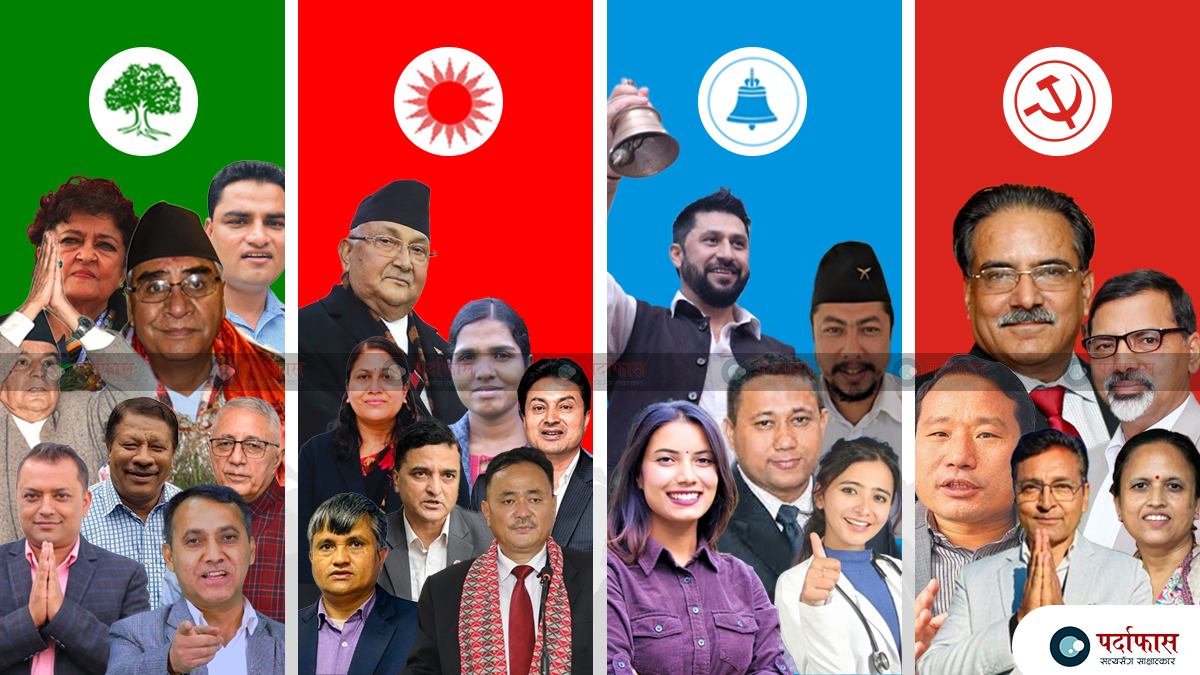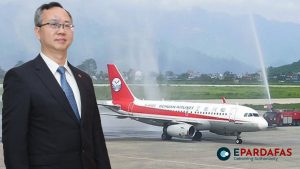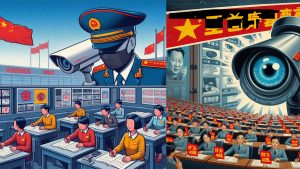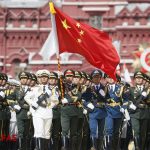
Who will be next PM of Nepal? race is heating up
As the counting of votes of the House of Representatives and Provincial Assembly elections which were held on November 20 has been completed, the political parties and leaders have intensified their races for the formation of the new government.
Nepali Congress has emerged as the largest party in Nepal by obtaining a total of 89 seats (57 direct and 32 proportional).
CPN-UML has become the second-largest party this time with a total of 78 seats (44 direct and 34 PR). Maoist Centre as usual has secured its position in third with 32 seats (18 direct and 14 PR). Likewise, Rastriya Swatantra Party(RSP) has emerged as the fourth largest party in the HoR with 20 seats (7 direct and 13 PR).
Similarly, Rastriya Prajatantra Party (RPP) has become the fifth largest party with 14 seats (7 direct and 7 PR) in the House of Representatives.
The Janata Samajwadi Party has become the sixth largest party getting 12 seats (7 direct and 5 PR).
CK Raut, Janamat Party, secured only one seat in the HoR under the first-past-the-post category and garnered 5 seats under the PR category.
Unified Socialists won ten seats in the HoR from FPTP but could not cross the threshold of 3 percent to become a national party.
Loktantrik Samajwadi Party has got 4 seats, Nagarik Unmukti Party 3 seats, Rastriya Janamorcha 1 seat, and Nepal Majdoor Kisan Party 1 seat in the HoR.
Likewise, five independent candidates have been elected to the HoR this time.
An intra- and inter-party race for the new prime minister has already begun inside different parties.
At least 138 seats are required for anyone to form a government. The ruling alliance secured 136 seats in the parliament, short of two seats to get a 138 majority. In order to form a new government, the alliance needs the support of some new legislators and parties to reach the necessary majority.
The present ruling alliance leaders have agreed to continue the alliance for forming a new government, by reaching the necessary majority with the support of some new legislators and parties. So, there is a high probability for the existing ruling alliance to form a government. However, it is not totally fixed because even now the alliance can break due to the dissatisfaction of parties in power sharing.
If the ruling coalition continues
There are many leaders who are claiming for the Prime Minister inside the ruling alliance. Being the largest party, Nepali Congress and its leaders have staked their claim for the post. The leaders inside the Congress include President Sher Bahadur Deuba, Senior leader Ram Chandra Paudel, Sekhar Koirala, PrakashMan Singh, Gagan Thapa, and so on. However, though these leaders are in the race for Prime Minister, first they have to be the parliamentary party leader from the election within the party i.e, Nepali Congress.
Nepali Congress party is preparing to hold the election of its parliamentary party leader. The winner of that election will only be eligible to become the country’s Prime Minister from Nepali Congress. President Deuba is likely to win the election. However, it is not sure.
Likewise, another name with a high chance inside the alliance for the Prime Minister is the Chairman of the Maoist Centre, Pushpa Kamal Dahal (Prachanda). Chair Prachanda is also in the race of being Prime Minister. Chairman Dahal does not have any challenges to face inside his party, like that of Sher Bahadur Deuba, if his chances to become prime minister increases. According to different sources, Deuba and Dahal have already reached an agreement for making Prachanda as the next Prime Minister from the alliance.
The probability of a CPN Unified Socialist for Prime Minister is very low as it has just 10 seats under the FPTP. The party has also failed to become the national party of the nation.
So, the question of the Prime Minister will become further clear after the parliamentary party leader election inside the Nepali Congress. However, the present alliance may not continue also if Gagan Thapa becomes the NC parliamentary leader because the youth leaders like Thapa are saying that they are not in favor of continuing the coalition just for the sake of it. Instead, they are calling for a new power-sharing deal guided by common policy. But the chances of Gagan is not seen high. If Sher Bahadur Deuba wins that election there is more chances for the present ruling coalition to continue further.
The concrete discussion on power-sharing deals with coalition partners begins only after when Nepali Congress settles its intra-party issues.
If Sher Bahadur Deuba wins the party leadership election inside the Nepali Congress and if the coalition continues further with the consent in power sharing, both Deuba and Dahal have equal chances of becoming the next prime minister as reportedly they had reached an understanding earlier.
If alliance breaks
There is also a chance of the ruling alliance breaking due to the disagreement of the parties in the power-sharing deal.
The UML wants to break this ruling coalition. Some powerful leaders of UML are openly proposing Nepali Congress to seriously consider the possibility of an NC-UML coalition government.
A few days ago when election results were coming, UML’s Chairman Kp Oli telephoned Maoist Chair Prachanda, and NC President and congratulated them for their victory in their constituency. Leader Oli also asked Prachanda to sit down and talk about moving forward unitedly.
Being the second largest party, if the CPN-UML chances increased to form the government after if the present coalition breaks, the Chairman of UML, KP Oli is all ready to form the government by mixing other powerful parties by being the Prime Minister or by offering the post to another force.
The government formation process will become a more sticky affair if the existing alliance breaks down. The fragmented votes to different parties in the election will be difficult in government formation. The emergence of new parties like RSP, NUP, and Janamat Party, and the seats they achieved means there is no telling how the new government composition will be. The largest parties will most likely have to reach out to the parties like the RSP, RPP, fringe Madhes-based parties, and independent candidates to form a government.
However, without Maoists’ support, there will be less chance for a majority—neither for Congress nor for UMl. So Congress may agree to hand over the government leadership to Dahal to prevent the UML from coming to power, it will be a very difficult task, to say the least.
It is hard to predict how the power-sharing deal pans out. Parties may not be able to forge a consensus on government leadership.
- Govt advised to explore maximum opportunities during Qatari Amir’s State Visit
- Universities will be free from partisan interests and sharing: Education Minister
- Ruling Alliance Agrees on Rotation of Provincial Leadership in Sudurpaschim
- Nepal Drowning in Chinese Debt: Kathmandu Mayor’s Poetry Sheds Light on China’s Grip
















Comments